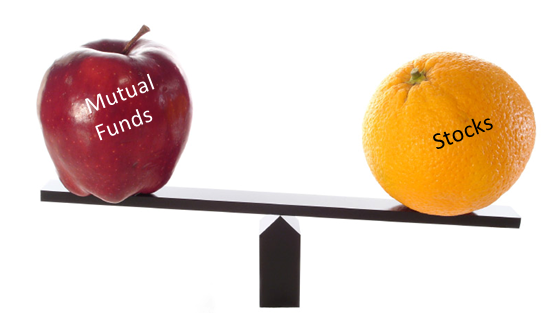Mutual Fund Investing Is Not Rocket Science
Post on: 28 Июль, 2015 No Comment

It drives me crazy to see personal finance articles and blog posts recommending mutual funds that no one should ever buy. You know, those mutual funds that are very lucrative for the broker who sells them (because of sales charges) and for the fund manager (because of high expenses), but are in no way a good deal for you.
Its especially infuriating, because while I accept that investing in individual stocks requires a fair amount of research and knowledge, the basics of mutual fund investing are not that complicated. Perhaps the concept of asset allocation is a bit more complex (although by no means impossible to learn), but anyone can learn how to pick a good mutual fund. Here are the basics:
Absolutely No Sales Charges!
This is one thing that I feel extremely strongly about. Sales charges usually called front-end load or back-end load, are something you should never agree to. If you buy through a broker, ask them. If you place your own order, check the funds info on Morningstar.com to make sure theres no load. Studies show that load funds do NOT perform better than no-load funds. Why would you pay 5% of your total investment, often upfront, getting nothing in return? Its outrageous.
Low Expense Ratio
An expense ratio is the annual fee levied by the fund. You probably know already that statistically speaking, managed funds do worse than cheap index funds, and that the explanation is, most likely, the higher expenses the managed funds charge. Higher expenses erode the profits that investors make. Rare is the managed mutual fund whose manager is so talented that the fund performs so much better than the overall market to justify and balance out its higher expenses.
Just as in the case of loads, why would anyone pay 2% annually, when they can pay half that or less and get the same (or better) results? Personally, I do not own any funds with an expense ratio higher than 1%, regardless of how fabulous they supposedly are.
A Low Turnover
This is not an issue if you hold your investments in a tax-deferred account, but a high turnover where the fund manager sells the funds assets often and replaces them with new ones means a higher capital gains tax bill for you with taxable accounts, even if you havent sold the fund. A good starting point is to aim for a turnover of 50% or less.
An Experienced Manager
You want to buy funds that are managed by seasoned, talented managers. Morningstar.com provides you with information about each funds manager, or management team.
Past Performance
Sure, past performance is no indication of future results, but I still like to see how the fund Im evaluating has performed compared with its peers over the past decade. Im especially interested in seeing how it did in a bad market (such as 2008) and in a good market (such as 2009). Any fund that consistently under performs its peers is likely not a good choice.
Minimum Cash Holdings
A fund that holds a lot of cash may under perform in a bull market. When I invest in a fund, I expect the manager to invest my money in stocks. Holding money in cash is something I can do by myself, thank you very much.
To sum it up, a no-load, low-cost fund, managed by an experienced manager, that has a low turnover, low cash reserves and consistently outperforms its peers, is a good place to start.
Just as a quick reminder, I am not a financial planner so you should definitely do your own homework prior to making any investment decision.
I would love to hear your own thoughts on mutual fund investing what do you insist on when picking a mutual fund?
Editor’s Note: I’ve begun tracking my assets through Personal Capital. I’m only using the free service so far and I no longer have to log into all the different accounts just to pull the numbers. And with a single screen showing all my assets, it’s much easier to figure out when I need to rebalance or where I stand on the path to financial independence. They developed this pretty nifty 401K Fee Analyzer that will show you whether you are paying too much in fees, as well as an Investment Checkup tool to help determine whether your asset allocation fits your risk profile. The platform literally takes a few minutes to sign up and it’s free to use by following this link here. For those trying to build wealth, Personal Capital is worth a look.














